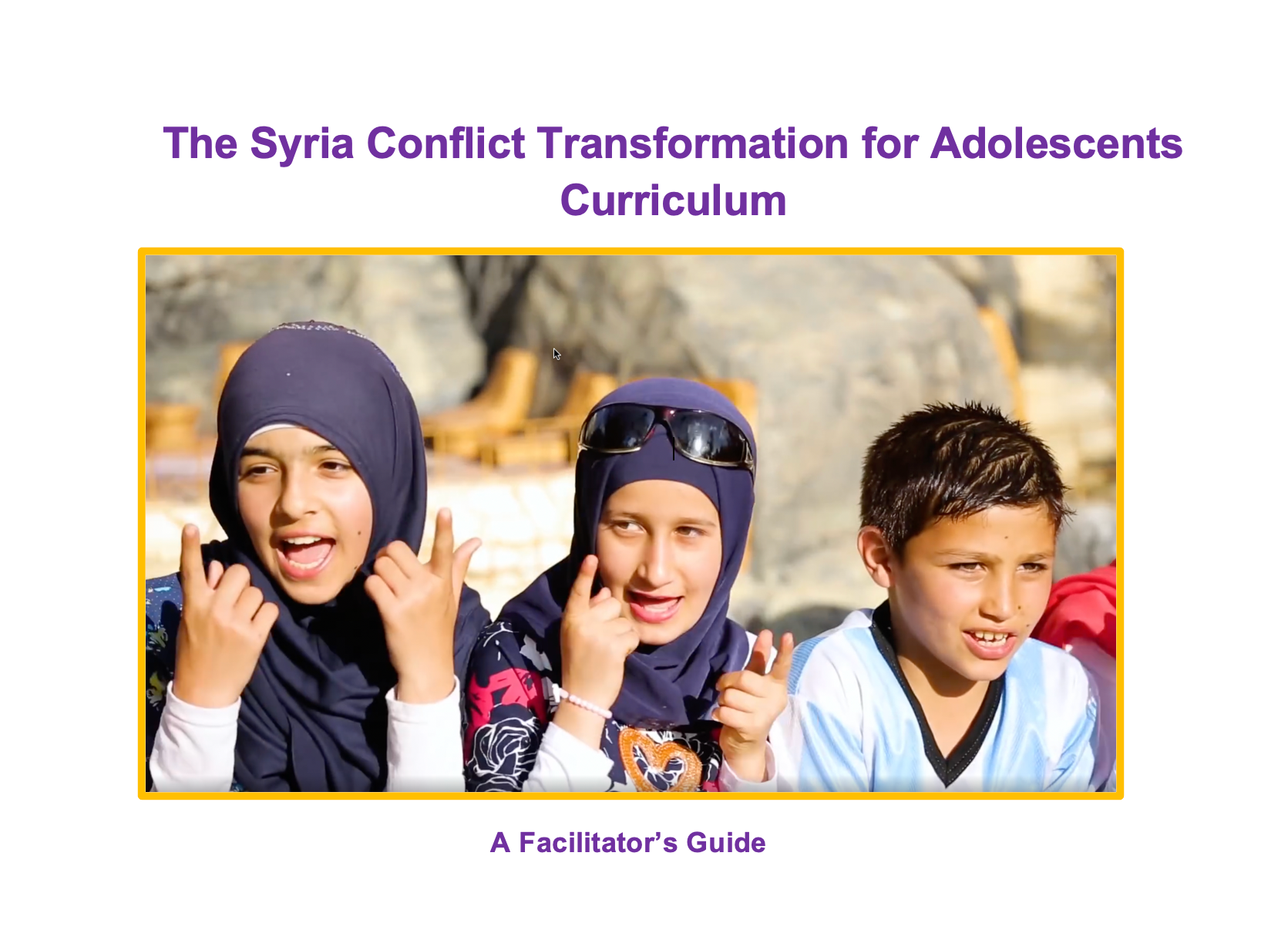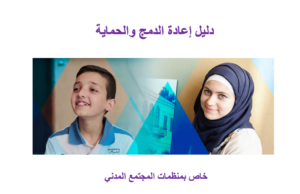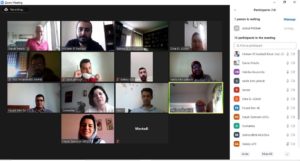In the tumultuous landscape of Northeast Syria, where conflict and instability have left deep scars on communities, the need for innovative approaches to build resilience and empower the younger generation is more critical than ever. PVE for Peace in collaboration with local Syrian CSOs and a number of international organizations and after conducting a comprehensive needs assessment developed the Syria Conflict Transformation for Adolescents curriculum, an innovative and comprehensive program designed to empower adolescents aged 12-18 in Northeast Syria. In this article, we will take you through the journey of developing this curriculum, its key modules, and how it aims to foster agency, critical thinking, and community engagement among Syrian adolescents.
Customized Approach for Optimal Learning
Recognizing the diverse needs of adolescents, the curriculum strategically divides participants into two age groups: 12-14 and 15-18. This division ensures that the content resonates with their unique developmental stages, optimizing their engagement and interaction with the material. Moreover, considering the potential literacy limitations, the curriculum emphasizes interactive handouts, drawing, and reading scenarios aloud to ensure inclusivity and comprehension.
Progressive Learning Pathway
The curriculum’s structure is ingeniously designed to foster a comprehensive transformation. It begins by nurturing personal assets, focusing on emotional awareness and coping strategies. Adolescents are empowered to identify and manage complex emotions, fostering positive coping mechanisms as alternatives to violence. This foundation of emotional intelligence prepares them toward understanding the roots of their identity, fostering empathy, and developing an open-minded perspective.
Building upon this foundation, the curriculum dives into conflict analysis, negotiation, and mediation skills. These modules cultivate problem-solving abilities, analytical skills, and critical thinking competencies. By harnessing these skills, adolescents are equipped not only to manage conflict but also to lead positive transformations within their communities.
Engaging with the Community
A remarkable facet of this curriculum is its holistic approach, transcending individual growth to encompass community engagement. As adolescents journey through modules, they evolve from introspection to relationships with others, culminating in their active involvement within the community. The curriculum encourages them to design and execute community initiatives rooted in their newfound skills, solidifying their sense of agency and self-efficacy.
Empowering Caregiver Engagement
Recognizing the pivotal role caregivers play in adolescents’ lives, the curriculum underscores the importance of caregiver involvement throughout the transformational process. By engaging caregivers, the curriculum fosters an ecosystem of support that reinforces the development of essential life skills and empowers adolescents to thrive in the face of challenges.
Modules that Build Progressively
The curriculum is divided into eight key modules that guide participants through a journey of personal growth, understanding, and community engagement.
- Introduction and Facilitation Techniques: Setting the stage for the journey, this module equips facilitators with key considerations, including safeguarding, mental health support, and intersectionality.
- Emotional Awareness: Adolescents explore diverse emotional experiences, link them to situations, and develop agency over their emotions. This module also enhances critical thinking by unraveling emotions’ impact on decision-making.
- Coping Skills: Teaching adolescents to regulate emotions and deploy non-violent coping mechanisms, this module equips them with vital tools for navigating difficult emotions.
- Perception of Self and Others: Adolescents delve into identity’s multifaceted nature, fostering empathy and critical thinking by seeing issues from diverse perspectives.
- Understanding and Responding to Conflict: By analyzing conflict and collaborative approaches, adolescents build critical thinking skills while developing the agency to resolve conflicts positively.
- Alternative Methods of Conflict Resolution: Negotiation and Mediation: Adolescents gain negotiation and mediation skills, strengthening their sense of agency in transforming conflicts.
- Community Assessment: Collaboratively identifying community issues and employing problem-solving tools, adolescents learn to engage actively in community problem-solving.
- Designing and Implementing Community Initiatives: Adolescents take their skills into action, designing community initiatives that amplifies their sense of agency and control over their future.
Conclusion
The Syria Conflict Transformation for Adolescents curriculum is more than a series of modules; it is a transformative journey toward empowerment and resilience. It recognizes the potential within each adolescent to become an agent of change within their communities. By nurturing emotional intelligence, critical thinking, conflict resolution skills, and a sense of agency, this curriculum lays the foundation for a future generation equipped to contribute positively to a more harmonious and empowered society in Northeast Syria.








Leave a reply